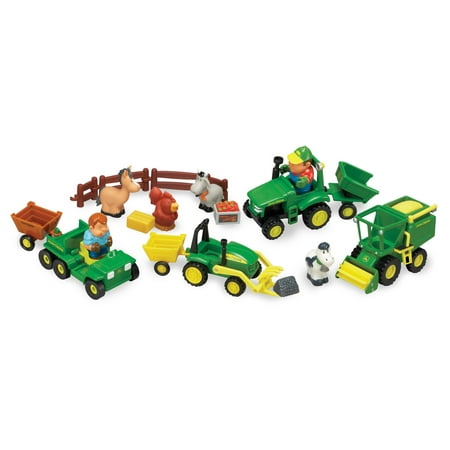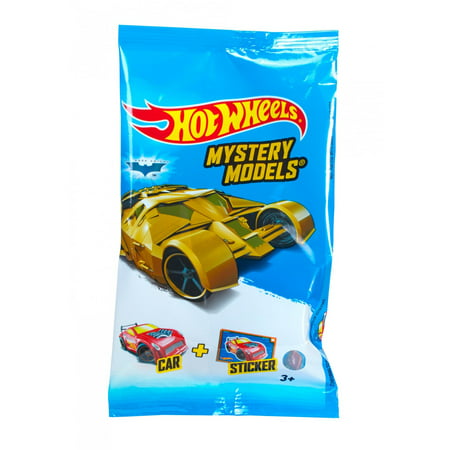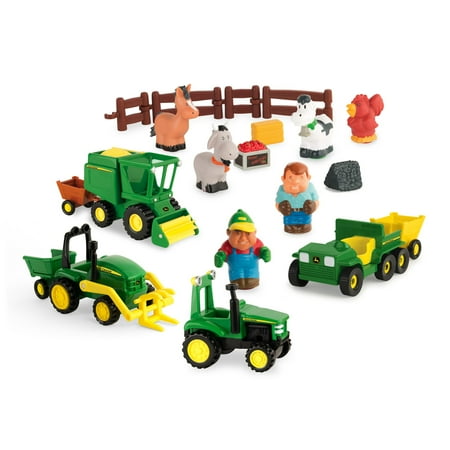John Deere 1st Farming Fun, Fun on the Farm Toddler Tractor Set With Farmers and Animals, 20 Pieces
Help make playtime fun with the John Deere Fun on the Farm Playset. It features a variety of machines, including a tractor, front end loader and more. This John Deere farm playset also includes little farmers and animals. Pair it with a toy barn (sold separately) to create a complete country scene. This toy can provide hours of entertainment at preschool or at home. Farm preschool toys offer a unique learning and play experience with classic play patterns that encourage both fun and imagination.







Reviews
There are no reviews yet.